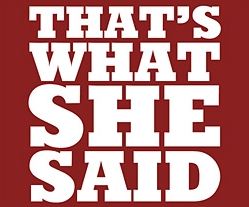On Sundays, I like to link to things that I wish I’d written myself. Here are some good reads about navigating life in the age of the internet. These are just snippets, CLICK ON THE TITLE TO READ THE WHOLE POST. 
Should Kids Have a Computer in the Bedroom? from Curvy Girl Guide
With all of the right steps taken, we felt pretty secure in [our son’s] web usage and stopped watching him with eagle eyes. Over the next few months, he started being tougher to wake up in the morning, having a bad attitude and dark circles under his eyes. We worried that maybe his acid reflux was acting up again or his pre-teen hormones were a scary sign of what was to come. One night at 11:30 my husband opened his laptop and said, “Our son’s computer is on the network.”
I Want It. I Need It. Give It To Me, Baby from Aiming Low
It just makes this visually stimulated girl very happy. I take a photo with my iPhone. I fancy the photo up with Instagram. I post it and sometimes people click that little red heart. Sometimes they comment! Sometimes they even say things that make me feel like I’m clever and awesome and not as revolting as I imagine! It’s amazing what the internet can do for your self esteem. Even if it is mostly the chosen parts of myself that I find worthy of displaying.
Friendship in the age of “friending” from Sweetney.com
This wired, telecommuting world of virtual friendship is one that didn’t exist as it does now, on the scale it does now, even 20 years ago – back when I was first entering adulthood. We’re all dealing with new forms of communication and strange new virtual circumstances and situations now that no generation before us ever had to, trying to generate and navigate relationships within these as pioneers traversing alien terrain without a map or compass. None of us knows what we’re doing, really – or what we might be losing in the transition from geographically-based friendships to technology-based ones.
Online commenting: the age of rage from Guardian.co.uk
The psychologists call it "deindividuation". It’s what happens when social norms are withdrawn because identities are concealed. The classic deindividuation experiment concerned American children at Halloween. Trick-or-treaters were invited to take sweets left in the hall of a house on a table on which there was also a sum of money. When children arrived singly, and not wearing masks, only 8% of them stole any of the money. When they were in larger groups, with their identities concealed by fancy dress, that number rose to 80%. The combination of a faceless crowd and personal anonymity provoked individuals into breaking rules that under "normal" circumstances they would not have considered.
A Certificate Of Presence: On Why I’m Obsessed With Taking Photographs, And Happier For It from Her Bad Mother
Barthes calls the photograph a ‘certificate of presence;’ I think that photographic attentiveness compels one to always be looking for those moments of presence, and that that attentiveness matters, regardless of whether the would-be photographer ‘certifies’ them by releasing the shutter. I look at so much through the lens of an imaginary camera, imagining the image that would result if I had a shutter to release, that it has become possible to freeze those moments, and to wrap them in descriptive words, without a camera or any other recording or documentary device. Because I’m living so many moments in documentary mode – taking real or imagined photographs, filming real or imagined video, narrating with real or imagined words – I’m retaining those moments more effectively.
